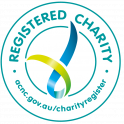According to the World Health Organisation, between 2% and up to 14% of older people will experience some form of abuse in their lives globally.
While the numbers for Australia are yet to be fully realised, it is estimated that up to 6% to 10% of older Victorians experience elder abuse, with older women reported as 72% of those in Victoria suffering elder abuse.
Distressingly, more than 90% of elder abuse occurs within the family context. In these situations, it is most likely to be perpetrated by a son or daughter of the older person. Financial abuse and psychological or emotional abuse together are the most common forms of abuse reported by older Victorians.
Inheritance, Not an Entitlement
Launched on World Elder Abuse Awareness Day on June 15, the Inheritance, Not an Entitlement campaign aimed at bringing awareness of and preventing financial elder abuse in the community.
The launch of the ‘6 Myths’ video begins to unpack some of the most common attitudes that many individuals have of their older parent, relative or an older person whom they are close to, or care for.
Elder abuse can often start with ‘benevolent ageism’ – where community attitudes of ‘protecting’ an older person begins to move away from respect for their independence and autonomy. Taken to the extreme it can move into harmful behaviour that affects the older person – physical, emotional, psychological, sexual, neglect, or a combination of these.
The campaign is a collaboration between Better Place Australia with the Respecting Seniors Network, Peninsula Legal Community Legal Centre, St Kilda Legal Service and the Southern Melbourne Primary Care Partnership (SMPCP).






